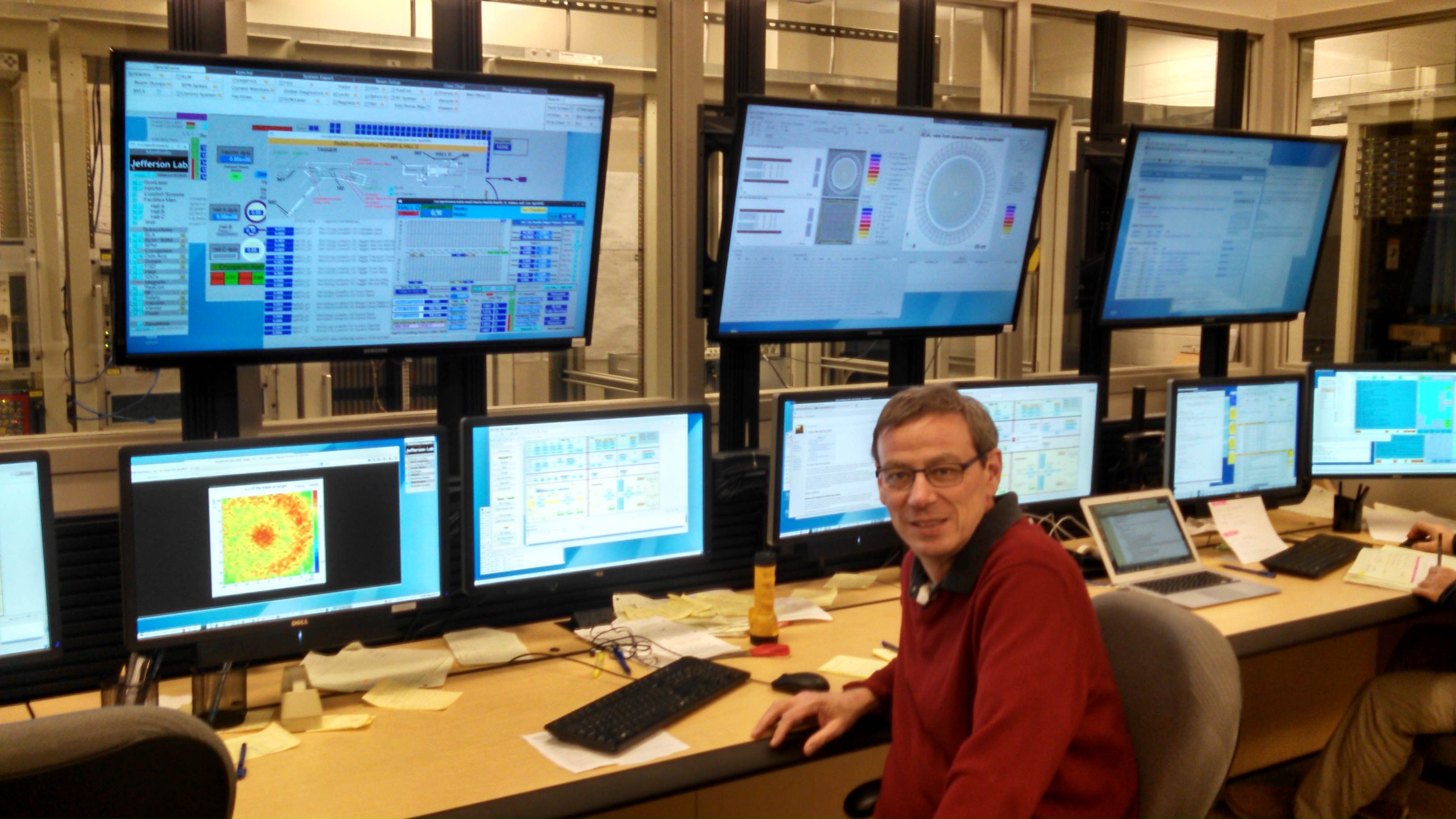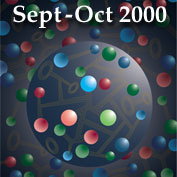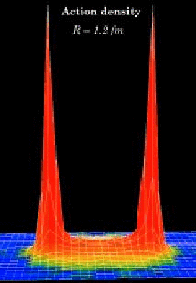|
Research Page for Curtis A. Meyer

|
The GlueX experiment collected its first data in late 2014. The experiment ran for about 8 weeks and collected nearly 500-million triggers. This show Curtis Meyer running a shift in December 2014.
Matthew Shepherd, Spokesperson
Justin Stevens, Deputy Spokesperson
Eugene Chudakov, Hall-D Leader
Curtis A. Meyer, Spokesperson Emeritus
|
The GlueX Ground Breaking took place in 2009.
The Long Haul is a story about GlueX in Science Connection.
The First GlueX publication described in the Newport News Daily Press, May 2017.
|
The proton and neutron are the fundamental building blocks of the cores of atoms.
However, they themselves are composed of more fundamental constituents, quarks and
gluons. These interact via quantum chromodynamics (QCD) and are confined inside
their parent proton or neutron. Mesons are bound states of quarks and antiquarks,
and in many ways can be though of like a hydrogen atom, where the excited states
are themselves new particles.
|

|
|
However, unlike hydrogen, where the levels are pure
exictations of the elctron, in mesons it is possible to also excite the gluonic
field that binds the quark and the antiquark together. Such an excitation is known
as a gluonic excitation, or a hybrid. Interestingly, many of these expected excitations
have so-called exotic quantum numbers-a signature that makes them experimentally very
interesting.
|

|
I am currently the spokeperson of the GlueX experiment
at Jefferson Lab in Newport News, Virginia. The experiment
will has been built in a new expereimental hall as part of a 340 million dollar upgrade to
the laboratory which was completed in 2016. Construction started on GlueX in late 2009.
Detector componets were installed in the new hall in 2013 and 2014 and first commissioning
happened in late 2014 with a short follow-up in April of 2015. Physics running oficially started
in the spring of 2017 and we expect to move to the main phase of our physics program, with
detector upgrades and increased beam luminosity, in the fall of 2019.
|
|
The GlueX experiment uses a beam of linearly-polarized 9GeV photons incident on a liquid-hydrogen
target to produce exotic hybrid mesons. The experiment detects and reconstructs charged particles
and photons, which in turn will allow us to resonstruct the particles that were produced
in the interaction of the photon with the proton. This allows us to piece back together the
exotic particles and shed light on the strong gluonic force binding quarks inside protons and
neutrons.
The most up-to-date information on the GlueX experiment can be found on the
GlueX Wiki page. This provides information
on all of the detector elements as well as the meeting schedules. A recent
article in the
American Scientist magazine provieds a nice introduction to the physics of GlueX.
Information of the experiment can also be found on the
GlueX Wiki page.
|
|
|
|